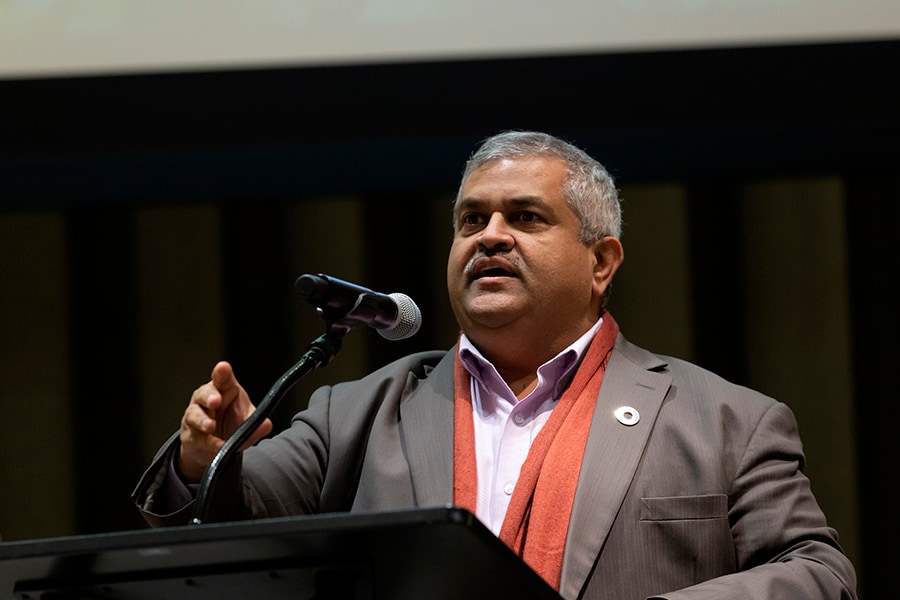
We have serious doubts on resources to achieve SDGs: UN's Satya Tripathi
United Nations' Assistant Secretary General, Satya Tripathi, spoke to Forbes India about sustainable development goals in the post Covid-19 world, and why we need to weigh out the true costs of future investments
 Image: Lev Radin/Pacific Press/LightRocket via Getty Images)
Image: Lev Radin/Pacific Press/LightRocket via Getty Images)
Currently in and out of the New York office even as the city remains among the worst-affected by Covid-19, Satya Tripathi has been Assistant Secretary-General of the United Nations and the Head of the New York office of UN's Environmental Programme (UNEP) since 2018. Born in Odisha and a qualified lawyer, Tripathi has served at various offices of the UN since 1998, in Europe, Asia and Africa; these include the UN Office for REDD+ Coordination in Indonesia, and serving as the UN Recovery Coordinator for the $7 billion post-tsunami and post-conflict efforts in Indonesia. His assignments include sustainable development, human rights democratic governance and legal affairs.
“This health crisis has shown that people with comorbidities and lower immunity and nutrition levels are paying a much heavier price. The divide is a stark reminder of what happens in a crisis—people at the lower end of the economic pyramid suffer far more disproportionately,” he says, stressing the importance of the United Nations’ sustainable development goals (SDGs), a blueprint to build a better and more sustainable future for all people. The SDGs were intended to target achievement by 2030; has Covid-19 put a spanner in the works? Edited excerpts from an interview with Tripathi:
Q. Is there a worry at the United Nations that the 2030 Sustainable Development Goals Agenda is going to suffer the consequences of the Covid-19 pandemic?
I do not see SDGs being sidelined as they are now thankfully entrenched into planning and thinking of nations. The health [Covid-19] question is paramount on everyone's mind at the UN, including Secretary General António Guterres. The risk is of fewer resources now available to do the right thing.
Covid-19 is a problem of epic proportions. There are 38.6 million unemployed people in the US now, roughly 30 percent of the working population. As the lockdown continues to hamper productivity, jobs, profits and government revenues, it will create a vicious cycle like no other we have seen. We will not be able to do good work and we have serious doubts about the availability of resources to achieve SDGs for the future. We are working with all stakeholders to keep them on the top of their consideration.
Q. It is obvious now that the social cost of coronavirus on marginalised communities is much higher than the health cost of the pandemic itself. Countries are also closing borders to save their people. What is your take on these two issues?
We always knew that natural disasters impact vulnerable communities much more than people with greater resources, but this health crisis has shown that people with comorbidities, lower immunity and nutrition levels are paying a much heavier price. The divide is a stark reminder of what happens in a crisis—people at the lower end of the economic pyramid suffer disproportionately. The SDGs are about equity and this affects that too; and the UN is concerned about this. As Secretary General Guterres says, we are not going to get out of this without equity and collaboration. We either fight this together or we fail together. There is no one country that will succeed while others don’t.








